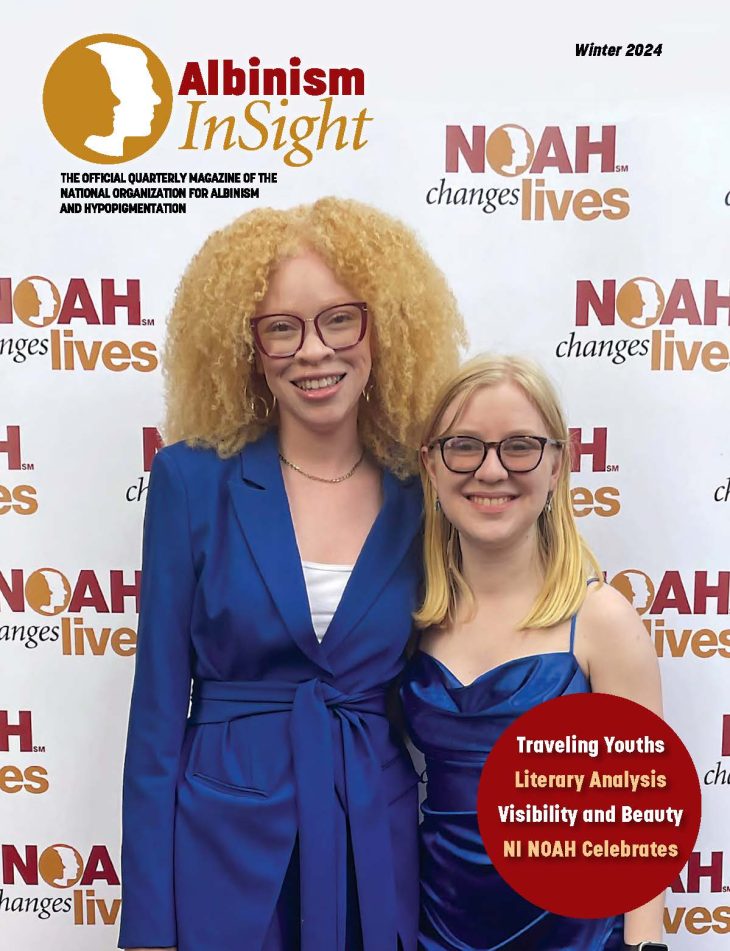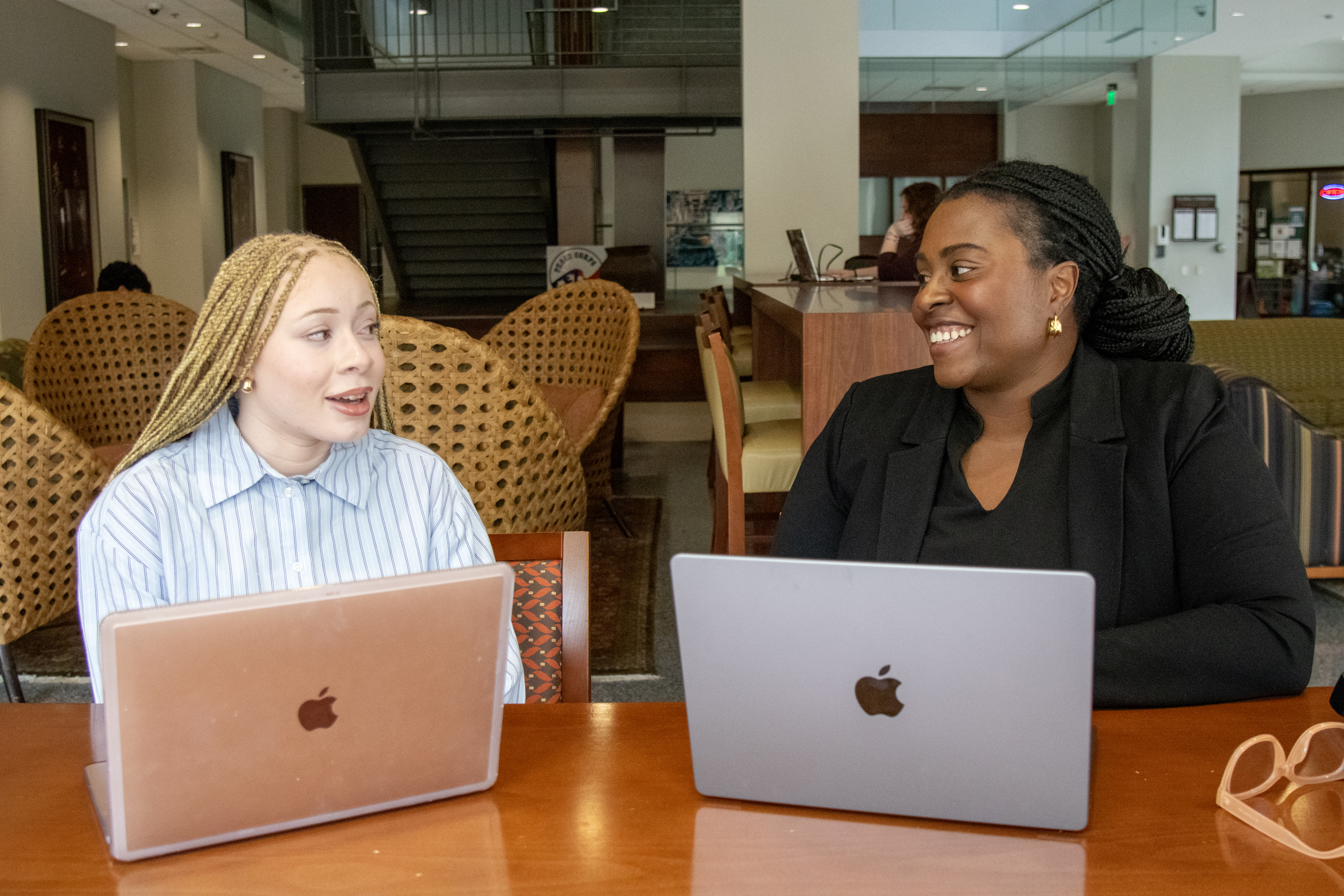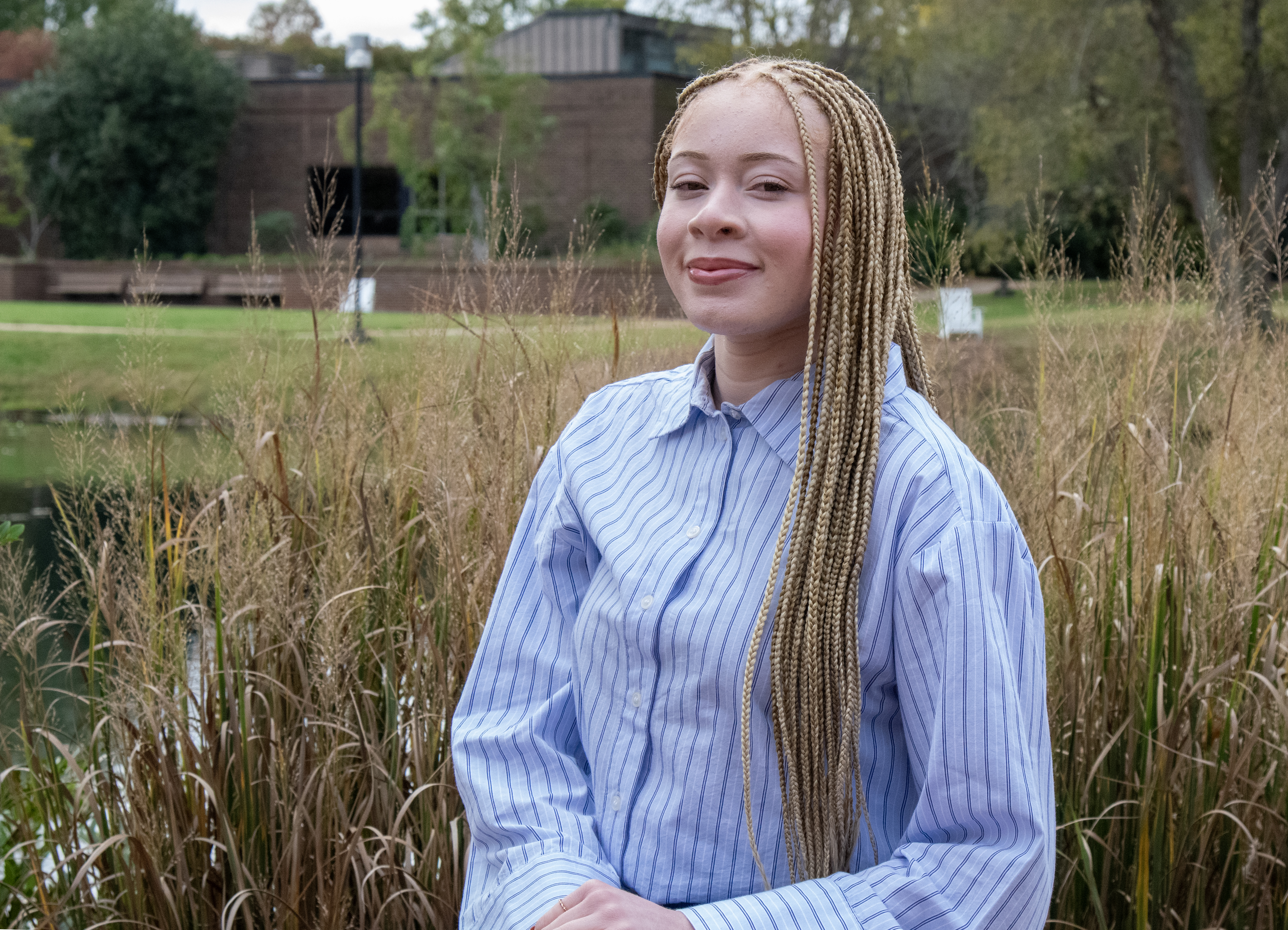The Lumen Prize-winning junior has twice published essays about her research in Albinism Insight, the National Organization for Albinism and Hypopigmentation's quarterly journal, after funding allowed her to travel to its national conference last summer.
Niara Legette grew up seeking community but never quite finding it. With the support of Elon’s Lumen Prize, she’s creating her own and turning her lived experience as a Black woman with albinism into research.
Albinism is a genetic condition that causes a lack of pigment in the skin, hair and eyes. For many white people with albinism, visual impairment is the most significant effect of the condition.
“For me and a lot of Black people, it’s the social side of things. I remember being bullied from the first day of pre-K,” the junior public health studies major from High Point, North Carolina, said. “I internalized a lot of my emotions, and that’s part of the basis of my research: this weathering aspect, because living can be so stressful, and the wear and tear that has on your body.”

In the process, the junior public health studies major’s Lumen Prize research has gained the attention of the National Organization for Albinism and Hypopigmentation (NOAH). She has twice published essays about her project in Albinism Insight, the organization’s quarterly journal — first last summer, and again this winter.
“The goal is to collect information in a way that when someone searching ‘Black experience of someone with albinism in the United States,’ or even, ‘is the word albino offensive,’ they’ll find at least one strong source to answer those questions,” Legette wrote in the magazine’s winter edition, which pointed readers to social media to participate in the study. “I look forward to dismantling harmful stereotypes and replacing them with accurate perspectives.”
Growing up, Legette never quite fit in. Classmates ostracized and bullied her. She and her parents often had to educate doctors and medical professionals about albinism. Worse, strangers in public would question whether her mother was her biological mother. She sensed a lack of trust among members of the Black community, shunned from experiences and social groups. Not realizing she is Black, it wasn’t uncommon for white people to make racist remarks around her.
I had the opportunity to finally hear experiences that were similar to mine. Parents were asking me about how I was bullied, and what they could do for their children. I decided to shift my project to expand beyond Black women to the chronic health and lived experiences of Black people with albinism.
– Niara Legette ’26
Those obstacles forged a determination that led her to transfer to Elon after a semester at UNC Charlotte. Once here, she discovered the public health studies major and — with mentor Yanica Faustin, assistant professor of public health studies, and Amanda Tapler, senior lecturer in public health studies — applied for and received the Luman Prize to research the birthing experiences of Black women with albinism in the United States. The Lumen Prize is Elon’s top award for undergraduate research, which provides rising juniors with $20,000 to advance meritorious scholarship.
She used part of the award funding to attend NOAH’s biennial conference in California last summer to interview and recruit Black mothers for her study. Previous studies of people of color with albinism are limited, and she nor mentors could find any research around the maternal experiences of Black women with albinism. She hit a roadblock at the conference when she couldn’t find more than a few Black women to speak with.

But in a special discussion session for Black people with albinism, she found community. They shared experiences of growing up, similar stories of being bullied and excluded, the pain and stress of being unfairly singled out for their outward appearance.
“It felt amazing to be immersed in an unspoken understanding that may only be felt at a NOAH event,” she wrote in the magazine.
The experience immediately changed the trajectory of her research.
“I had the opportunity to finally hear experiences that were similar to mine,” Legette said. “Parents were asking me about how I was bullied, and what they could do for their children. I decided to shift my project to expand beyond Black women to the chronic health and lived experiences of Black people with albinism.”
Already impressed by Legette’s “intellectual curiosity far beyond her years,” Faustin saw how the conference motivated her to influence the public health field.
“We haven’t found any existing databases that account for someone being Black and having albinism,” Faustin said. “Niara is really going to be one of the first people to collect that data and ask them about their experiences with racism: How they’re perceived, what their narratives are, and then examining how that racial stress might influence their chronic health.”
Filling that void in research has the potential to lead to further research and data-informed practices to aid people of color with albinism, something Faustin refers to as “data justice.”
Legette also hopes to dismantle stereotypes and myths around albinism, and to accurately reflect the experiences of others with the condition who may feel excluded because of their race.
“I can’t say it’s rooted in sheer curiosity,” she said. “A lot of it is rooted in the fact that I want answers, too. I want to make things different for the people that are coming after me so that they don’t have to experience these things.”



